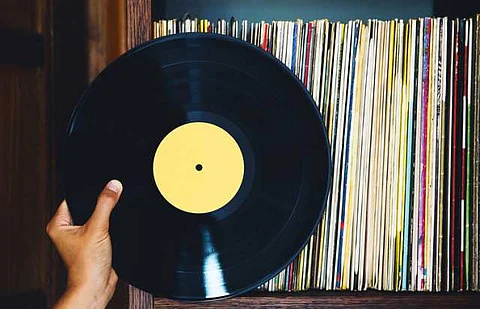
- Home
- About Us
- SOULIVITY TODAY Radio Show!
- COMMUNITY HUB
- GO SHOP by Soulivity!
- ColumnsColumns
- CultureCulture
- Lifestyle
- Contact Us!

Vinyl is back, or so it might seem. For better or worse? I'm not so sure myself.
Photo courtesy of Shutterstock/NataliaDeriabina
Author: Jamie Birkett, University of Salford
Like a lot of vinyl enthusiasts, I too enjoy the ritual, the feel, the physicality of a real product in my hands. But as soon as I get to the listening part, the sound engineer in me can't help but feel it's all a bit of snake oil.
Following yet another successful record store day in an ever growing market, a closer look at the top 10 highest selling vinyl albums of 2017 reveals that seven out of the 10 are either re-releases from legacy artists or old soundtracks. There's plenty that has been said about the reality of this revival on independent artists and labels but what impact has it had on the recording itself?
Although ostensibly a market driven forward by new technologies, the audio recording world has a tendency to be nostalgic for that same vintage "authenticity" that lies behind the vinyl revival. Analogue synths and reel-to-reel tape decks, although old technology, are still the holy grail for many recording engineers that yearn to capture the sounds they grew up with. And for the younger generation, a return to analogue recording ideals may well represent a rejection of the seemingly less real digital audio they grew up with.
In a market increasingly aimed at bedroom producers and "prosumers", many of the most popular audio plug-in manufacturers concentrate on creating "in-the-box" digital plug-in versions of vintage audio hardware. These plug-ins have done wonders to advance the quality of home recorded music and even the grumpiest of old-school sound engineers would find it hard to resist the temptation of owning a piece of that classic sound at a fraction of the price. But it was only a matter of time until all this vinyl frenzy seemingly forced a gap in the market for the snake oil salesmen to jump on that wagon.
A new old sound
Recently the popular audio plug-in developer Waves released its Abbey Road Vinyl plug-in. If the "Abbey Road" moniker alone wasn't enough to steam up your rose-tinted glasses, this vinyl emulation promises to capture the very "retro feel of a record, combined with the analogue warmth of its sound which makes vinyl a beautiful nostalgic statement". With a reputation like Waves' and an RRP of $249 (about £192), I can only imagine that it does come close to being a "precise model" of the original Abbey Road cutting lathe. But is that really a good thing?
Zealots on either side of the fence can argue until they're blue in the face about whether vinyl sounds better or not. But even if we ignore that a large number of commercially released vinyl is pressed using CD quality digital files, the reality is that technically it just can't compete. Surface noise, warping and added distortion are inherent to vinyl and all amount to a far different representation of the audio that the artists and producer intended for the listener.
Then what does vinyl emulation hope to achieve exactly? It would seem that the soul purpose of these types of plug-ins is to actually recreate the particularly undesirable artefacts that recording engineers tried so hard to eliminate before digital audio existed. So if the vinyl revival is really driven by the music fans' desire to have a real product, complete with the ritual and aura of a physical record, then vinyl emulation is nothing more than a degradation tool. Maybe it's time we stopped with the nostalgia, fellow recording engineers. We've gone too far, time to go back. Or should that be forward?
Jamie Birkett, Lecturer, University of Salford
This article was originally published on The Conversation. Read the original article.
